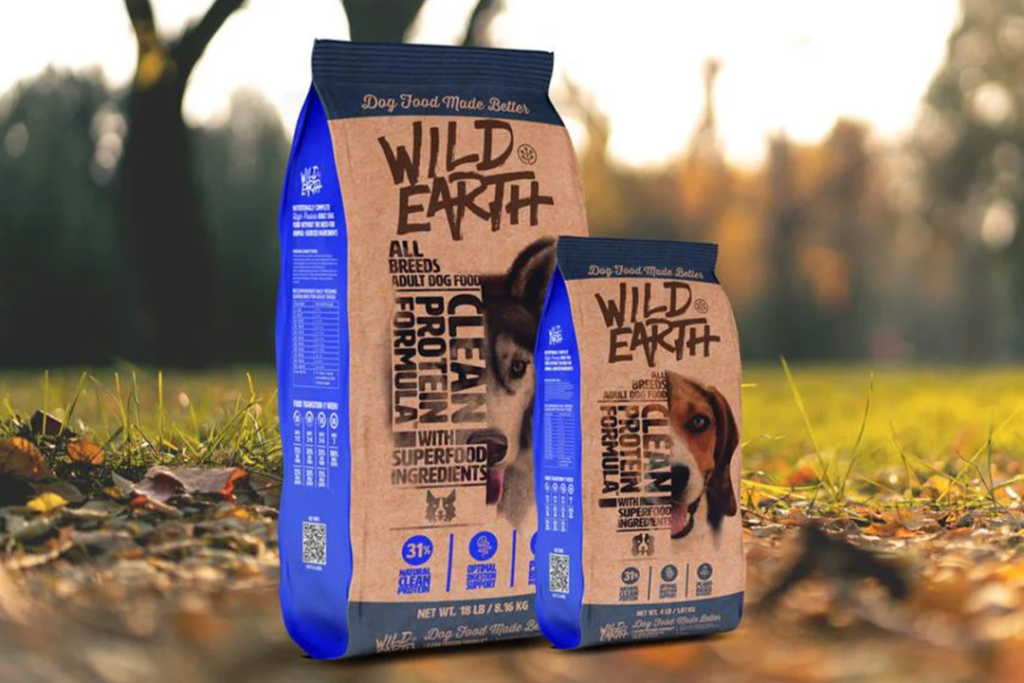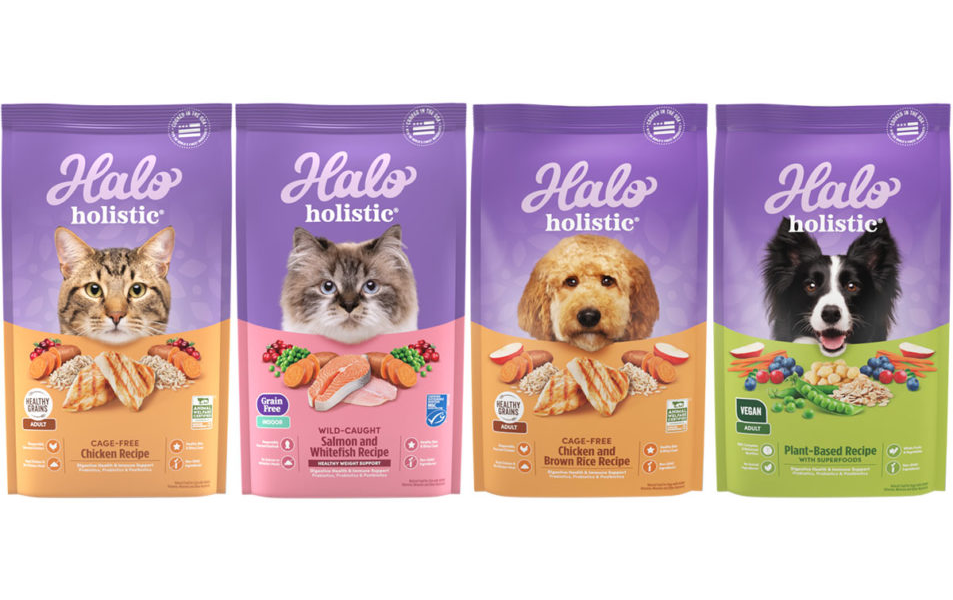
Feeding your pet vegan dog food is an option that many pet owners are increasingly exploring, driven by concerns for animal welfare, sustainability, or their own dietary choices. While dogs are omnivores, capable of consuming both animal and plant-based foods, it is crucial to understand the unique nutritional needs of canines to ensure a plant-based diet is safe, balanced, and beneficial for your dog’s health. This article will explore whether vegan dog food is safe, what considerations are necessary for feeding a dog a vegan diet, and which vegan dog food brands are trusted in the market.
Is Vegan Dog Food Safe for Dogs?
The question of whether a vegan diet is safe for dogs hinges on nutritional adequacy. Dogs require a range of nutrients—such as proteins, fats, carbohydrates, vitamins, and minerals—for energy, growth, and maintaining bodily functions. While many of these nutrients are traditionally sourced from animal products, dogs can obtain them from plants as long as the diet is carefully formulated. However, there are important points to consider:
- Protein: One of the main concerns with feeding dogs a vegan diet is providing enough protein. Dogs require specific amounts of protein to support muscle growth, tissue repair, and overall bodily functions. Plant-based proteins can come from ingredients like lentils, peas, quinoa, chickpeas, and soy. These plant sources provide sufficient protein, but it’s crucial that the food is formulated to meet the minimum protein levels recommended for dogs. The Association of American Feed Control Officials (AAFCO) sets nutritional standards for dog food, and any commercial vegan dog food should meet these guidelines to ensure dogs get the protein they need.
- Essential Amino Acids: Taurine and L-carnitine are two amino acids that dogs need for heart health, muscle function, and overall well-being. These are commonly found in animal-based foods, but are limited in plant-based ingredients. Deficiencies in taurine have been linked to heart conditions like dilated cardiomyopathy (DCM) in dogs. Therefore, vegan dog food must be supplemented with these amino acids to ensure dogs on a vegan diet do not suffer from deficiencies.
- Vitamins and Minerals: Dogs require a variety of vitamins and minerals, including Vitamin B12, calcium, iron, and zinc. Vitamin B12, in particular, is an essential vitamin that is naturally found in animal products but is lacking in plant-based foods. Dogs on a vegan diet will need a source of B12, either through fortified foods or supplements. Similarly, calcium and iron, which are often associated with animal products, need to be adequately provided in a vegan diet, possibly through supplements or fortified plant-based ingredients.
- Fats: Dogs need essential fatty acids like omega-3 and omega-6 to support their skin, coat, and brain health. While these fats are often found in fish oils in traditional dog food, plant-based alternatives like flaxseed oil, chia seeds, and algae can provide the necessary omega fatty acids in vegan dog food. Ensuring that a vegan dog food provides these essential fats is important for maintaining your dog’s overall health.
Factors to Consider When Feeding Dog Vegan Food
While dogs can technically survive on a vegan diet, this does not mean every dog should be placed on one. The safety and success of a vegan diet for dogs depend on careful consideration and planning. Here are some key factors to keep in mind:
- Consult a Veterinarian: Before transitioning your dog to a vegan diet, it is critical to consult with a veterinarian or pet nutritionist. Each dog is different, and factors such as breed, age, health status, and activity level play a role in determining whether a vegan diet is appropriate. Some dogs may thrive on a plant-based diet, while others may have difficulty absorbing certain nutrients or may develop health issues without the inclusion of animal products. A veterinarian can recommend specific vegan dog foods or supplements to ensure your dog is getting complete nutrition.
- Monitor Your Dog’s Health: When transitioning your dog to a vegan diet, close observation is key. Monitor your dog’s energy levels, coat condition, digestion, and overall health. If you notice any signs of nutrient deficiency—such as lethargy, weight loss, skin issues, or digestive problems—consult your vet immediately. Dogs with certain health conditions, such as those with sensitive digestive systems or specific nutrient requirements, may not do well on a vegan diet and may require adjustments.
- Nutritional Balance: Vegan dog food must meet the same nutritional standards as traditional dog food. If you choose a commercial vegan dog food, make sure it meets the AAFCO standards for dog nutrition. For homemade vegan diets, working with a veterinary nutritionist is essential to ensure that all nutrient requirements are met, as it can be challenging to create a nutritionally complete vegan meal at home without expert guidance.
Vegan Dog Food Brands
There are several vegan dog food brands that offer nutritionally balanced products, formulated to meet the needs of dogs on a plant-based diet. These brands provide a convenient and safe option for pet owners interested in feeding their dogs vegan food:
- V-Dog: V-Dog is a U.S.-based company that offers 100% plant-based dog food and treats. Their products are hypoallergenic and designed to meet the nutritional requirements of dogs, including essential amino acids, vitamins, and minerals. V-Dog’s kibble is made with ingredients like peas, brown rice, and lentils, and it is supplemented with taurine and L-carnitine to ensure heart health.
- Wild Earth: Wild Earth is a popular vegan dog food brand known for its high-protein formulas made from yeast and plant-based ingredients like chickpeas and oats. Their food is formulated to meet AAFCO standards and is supplemented with essential nutrients. Wild Earth also emphasizes sustainability, using eco-friendly practices in their production process.
- Benevo: Based in the UK, Benevo offers both dry and wet vegan dog food options. Their products are fortified with taurine, L-carnitine, and other essential nutrients to ensure a balanced diet for dogs. Benevo is certified by the Vegan Society and meets the nutritional standards for pet food in Europe.
- Halo: Halo offers a plant-based vegan dog food formula that is holistic and free from artificial ingredients. Their vegan recipe is fortified with essential vitamins, minerals, and amino acids to provide complete nutrition for dogs.
- Nature’s Recipe: Nature’s Recipe offers a grain-free, plant-based formula designed for dogs with sensitivities. Their vegan recipes are formulated to meet the nutritional needs of dogs without relying on animal products.

How is Vegan Dog Food Good For The Environment
Vegan dog food is environmentally beneficial as it reduces the demand for animal agriculture, which is a major contributor to greenhouse gas emissions, deforestation, and water usage. Plant-based diets for pets help lower the carbon footprint, promote sustainability, and conserve natural resources compared to meat-based pet food. Following are some other points explaining how vegan dog food is good for the environment:
- Reduces Greenhouse Gas Emissions: Plant-based diets require less energy and resources than animal farming, lowering carbon dioxide and methane emissions.
- Decreases Land Use: Producing vegan food requires less land for crops compared to raising livestock, reducing deforestation and habitat destruction.
- Conserves Water: Plant-based food production uses significantly less water than meat production, preserving freshwater resources.
- Minimizes Pollution: Livestock farming often leads to water and soil pollution from waste runoff; vegan diets reduce this environmental impact.
- Supports Biodiversity: Reducing animal agriculture helps protect wildlife habitats and ecosystems from overexploitation.




